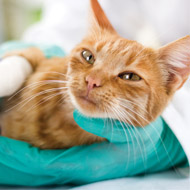
Findings may help to uncover and address animal abuse
Car accidents and non-accidental blunt force trauma cases in cats and dogs present with different types of injuries, according to new research.
A study published in the Journal of Forensic Sciences describes how abused animals generally have more head injuries and rib fractures, as well as claw damage and tooth fractures.
It also shows how pets involved in motor-vehicle accidents tend to suffer skin abrasions, lung collapse, bruising and injury to the hind end. The researchers suggest that this could be a result of the animal running away from a moving vehicle.
To continue reading please visit vetcommunity.com.



 The latest
The latest